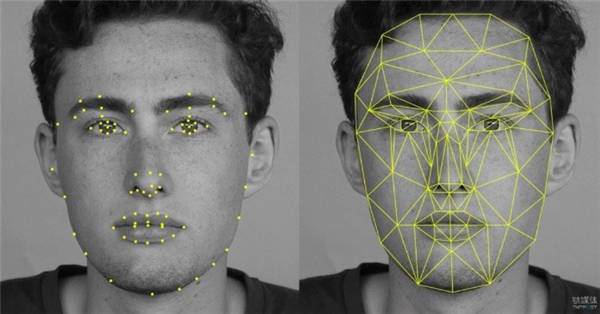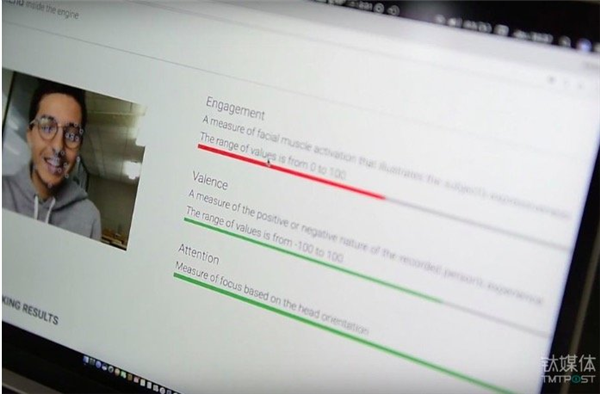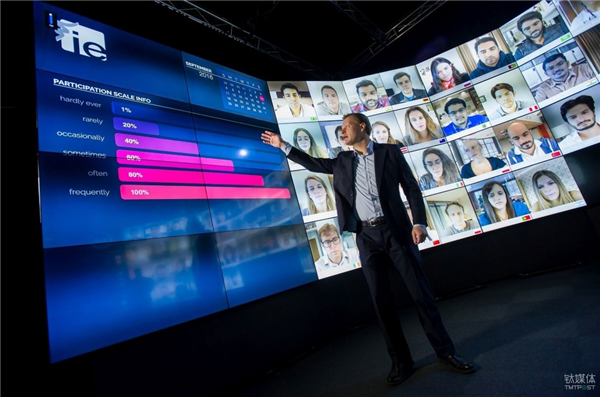Snapchat's face recognition system. ESG Management School will use artificial intelligence and facial recognition technology in two online courses beginning in September this year to monitor students' classroom performance. The software called Nestor was developed by LCA Learning. LCC founder Marcel Saucet explained that the software will use the student’s webcam to analyze eye movements and facial expressions to determine whether students are absorbed in watching video lessons. . Last month, Saucet held a press conference at the Paris campus of the Paris Higher School of Management. He said that this technology can significantly improve the performance of students who regularly attend online courses or MOOC courses. "The problem with MOOCs is that it is actually useless," said Saucet. "We tried the Internet courses 10 years ago. The United States started 25 years ago, but it turned out to be very ineffective." Saucet said that the software will generate test questions based on the content of the class that was played while walking, thereby improving the quality of teaching. Initially, this technology will only be used for students who watch videos remotely, but Saucet hopes they will also be able to launch a version suitable for the classroom to monitor when students are deserted in real time. The Nestor system is assessing the degree of concentration students have during classes. LCA also demonstrated the product at the WCPUN, and WCPUN later described Nestor as "the first AI-led course" in its official newsletter. However, this description is not completely accurate: this software can not really carry out teaching, this is not the school's first attempt on similar technologies. Madrid’s IE Business School recently introduced the WOW Room (Window on the World, “See the World Through the Windowâ€), where professors can stand in front of a screen and give lectures to remote students around the world. Like Nestor, this system uses an “expression recognition system†to assess whether students are focused. WOW Room launched by IE Business School, Spain. The group supporting the use of AI technology in the education field stated that this technology can be considered as a “digital tutor†that can tailor teaching plans according to students’ individual needs and promote the development of more effective learning habits. Such software can also help teachers and provide quantitative feedback for their teaching. Some researchers even consider the participation of AI as a “lifelong learning companion†and can stay with the student for several years. In addition to facial recognition and analysis, Nestor software can also synchronize student calendars, recommend suitable study time to them, track and record their online behaviors, and thus summarize the rules. For example, if students typically watch YouTube videos in the middle of the week, Nestor will advise them to use these hours to learn. Opponents argue that AI procedures rely on massive personal information and the confidentiality of such data is worrying. The data analysis company InBloom had published a personalized learning program in New York, but in 2014 it shut down because of public concerns about where student data will be used and how to avoid hacking. In this regard, Saucet stated that Nestor will not store captured video clips, and the company will not use any data collected by the software to sell profits, but will only sell software to schools. He said the data will be encrypted and anonymized. But Saucet also admitted that the final decision on how to handle and store such data is in the hands of the school. Rose Luckin, a professor at the University of London’s Knowledge Lab, believes that AI can open the “black box of learning†and unlock potential by providing information about the way of learning and time. But she also reminded everyone that the new technology may seem tempting, but it may not be able to solve the immediate problem: "What is happening now is led by technology rather than learning science. New technologies may have a huge impact on education, and the current situation is actually very risky." A large number of studies have been based on facial analysis to analyze facial expressions. Professor Luckin believes that programs such as Nestor can be of great help to distance learning students because it is like a teacher who supervises self-study. However, she also pointed out that at present, no one in the academic circle has studied how these programs can play an important role in education. For Nestor's ability to generate test questions based on the content of the class that was playing during the walk, she also questioned why students should be tested with content that is intended for students to go out of their way. "Taking into consideration the teaching factors, and a more comprehensive approach is to tell students when they are focused and how focused learning is related to learning performance," Professor Luckin said, "so that you can give feedback to students and help them Arrange learning time more effectively and become a more effective learner." Although some people worry that AI will eventually replace the human teacher one day, Prof. Luckin thinks that technology is only an auxiliary function, and it will not be a substitute for the teacher. Saucet also agrees with this view, "The contact between people will not disappear," he said, "Professor will always exist." Pet shelter and rest area,pet house bed for cat and dog,indoor pet house bed Ningbo XISXI E-commerce Co., Ltd , https://www.petspetscare.com

